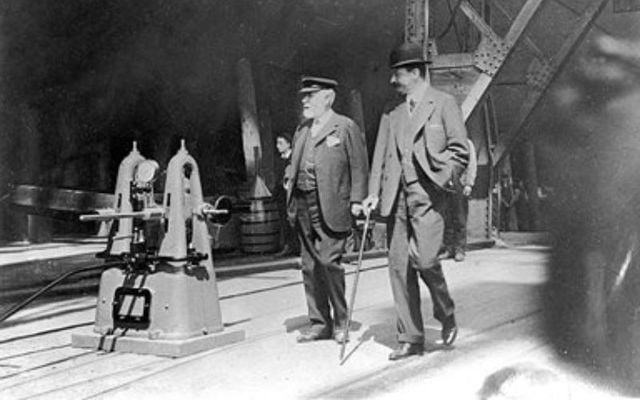Share Share Share Share Email Do you want to see your money grow with time, just like a tiny seed turns into a big tree? Well, your dream is about to come true! As that’s exactly what investment does for your money! In short, it allows small contributions to grow exponentially with the right approach and time. But the million-dollar question: which one to go for? After all, with so many options: stocks, bonds, ETFs, mutual funds, real estate, and even cryptocurrency—it’s quite normal to feel confused. The good news? You don’t have to be a financial expert to get started.
Instead, the sooner you begin, the more profitable it will be. Read on to find out more! What are Investment Vehicles? An investment vehicle is basically a method that is used to grow your money with time. Simply put, they allow you to earn returns based on your money, rather than letting it sit idle.

Some provide fast growth but might be risky (stocks, crypto, etc.), whereas others offer slow but steady income (bonds and savings accounts). For example, let’s say you have about $1000 to invest.
Here’s how it will work: Stocks: You can purchase shares in a reputable company. So, if it grows, your investment will also increase. Bonds: You lend money to the government or maybe an organization, and they pay you back with interest over time.
Mutual Funds & ETFs: Here, the money is pooled with others and invested in a mix of stocks and bonds, eventually decreasing the risk. Real Estate: You purchase a rental property and tenants pay you rent every month. A great source of passive income! Cryptocurrency: You invest in digital assets, like Bitcoin — wishing for high returns, but obviously with higher risk.
Types of Investment Vehicles When it comes to growing your money, picking the right one is super essential. Each investment type serves a different purpose, with some focusing on long-term growth while some help in altering your portfolio. Below is a list of the top 3 investment vehicles that you must know about: Equity Investments Equity investments offer you partial ownership in a company or asset.
That is, the value of your investment grows as the asset appreciates or as the company earns a great deal. While they can provide high returns, they are also associated with market volatility and risk. For instance, Stocks, Mutual Funds, ETFs, Real Estate Investment Trusts (REITs), etc.
Fixed-Income Investments These kinds of investments involve lending money to a corporation or government in exchange for interest payments on a regular basis. Such as, Bonds, Certificates of Deposit (CDs), Money Market Funds, Preferred Stocks, etc. In other words, they are particularly designed for stability, lower risk and predictable returns.
Ideal for conservative investors or those reaching retirement! Alternative Investments Unlike traditional stocks and bonds, alternative investments often offer high returns, but the only thing it needs is more expertise. They are super good for modifying your portfolio and hedge against the stock market volatility. For example, Real Estate, Commodities, Cryptocurrency, Private Equity and Venture Capital, Hedge Funds, etc.
Retirement & Tax-Advantaged Accounts Retirement and Tax-Advantaged accounts help you grow your money while decreasing the tax burden, making them important for anyone planning for long-term financial security. Here’s to how: Retirement Accounts They are designed to help you save for your post-work years, offering tax benefits in return of keeping your money invested till retirement. 401(k) (Employer-Sponsored Plan), Roth 401(k), Solo 401(k), SEP IRA, and SIMPLE IRA are some of the examples of retirement accounts.
The best part? They are tax-free growth, based on the account type. Tax-Advantaged Accounts These kinds of accounts go beyond retirement savings. Instead, they can also help you save up for healthcare, education and any other future expenditures while lessening taxes , which is indeed a great deal.
Some examples of tax-advantaged accounts are as follows: Health Savings Account (HSA), 529 College Savings Plan, Municipal Bonds and so on. Choosing the Right Investment Vehicle With so many options, selecting the right investment vehicle is quite challenging. It depends on a variety of factors, such as, your financial goals, risk tolerance, time horizon, etc.
The things you need to consider are as follows: Define Your Financial Goals Before making any investment, always make sure to ask yourself: Long-term growth? Opt for stocks, ETFs and mutual funds. Stable, low-risk income? Bonds and dividend stocks are a perfect deal for steady returns. Passive income? Nothing can beat Real estate, REITs, and dividend stocks.
Hedge against inflation? Gold, commodities, and alternative investments help protect value. Assess Your Risk Tolerance It totally depends on how comfortable you are with market fluctuations. High Risk, High Reward: Stocks, crypto, venture capital, and alternative investments.
Moderate Risk: ETFs, mutual funds, REITs, and corporate bonds. Low Risk, Stable Income: Government bonds, CDs, and money market funds. Consider Your Investment Timeline The length of time frame you plan to invest greatly affects your choices: Long-Term (10+ years): Stocks, ETFs, real estate, and retirement accounts allow compound growth.
Medium-Term (3–10 years): Bonds, REITs, and balanced mutual funds provide steady returns. Short-Term (0–3 years): Money market funds, high-yield savings, and CDs keep money liquid and secure. Pros & Cons of Different Investment Vehicles Each kind of investment vehicle comes with its own sets of benefits and drawbacks.
They are as follows: Stocks Pros: High growth potential with time May produce money through price appreciation & dividends Can be easily purchased and sold (liquidity) Cons: Super volatile No guaranteed returns Needs a good amount of research and patience Bonds Pros: Less risk in comparison to stocks Offers steady, predictable income via interest payments Ideal for portfolio diversification Cons: Less returns than stocks with time Might have long maturity periods Mutual Funds & ETFs Pros: Perfect for beginners Offers instant diversification Flexibility with stock-like trading Cons: Might have high fees Limited control Real Estate & REITs Pros: Potential for passive income (rent) Values appreciate with time REITs offer real estate exposure without direct ownership Cons: Needs large upfront capital Hard to sell quickly Cryptocurrencies Pros: High potential for rapid gains Independent of traditional markets 24/7 trading with global access Cons: Super volatile Not backed by physical assets or earnings Gold & Commodities Pros: Protects against inflation and financial uncertainty Stable store of value Cons: Doesn’t generate passive income Retirement Accounts Pros: Tax-free growth Encourages long-term savings for retirement Cons: Early withdrawals might come with penalties Less accessible Common Mistakes to Avoid When Investing Always avoid the following pitfalls to invest smarter and build your wealth effectively: Set clear and financial goals and risk levels. Focus on long-term rather than short-term. Opt for spread investments, such as stocks, bonds, real-estate, etc.
Stick to a disciplined approach and avoid emotional decisions. Select low-cost ETFs and avoid needless trading fees. Review and rebalance on a regular basis to maintain risk levels.
Have an emergency fund in hand. How to Get Started with Investing? Starting your investment journey can be extremely smooth if you follow the right way as follows: Define your investment goals (retirement, passive income, or wealth growth). Save up 3-6 months of expenses in a savings account.
Avoid stock-picking and start with low-cost index funds or ETFs for steady growth. Invest a fixed amount regularly (e.g.
, monthly) to decrease market risk and grow money with time. Mix stocks, bonds, real estate, and ETFs to manage risk and ensure substantial returns. Select commission-free brokers and low-cost ETFs to save wealth in the long-term.
Monitor your investments, rebalance annually, and stay updated on market trends and financial tactics. Concluding Words At the end of the day, there’s no single “perfect” investment vehicle. Instead, it totally depends on your financial goals, risk tolerance, and how long you plan to invest.
However, the earlier you begin, the more time your money will get to grow and multiply. Therefore, always stick to a strategy, diversify wisely and stay consistent as wealth is built with time, not overnight. Your future self will thank you! Related Items: auto , Investment Vehicles Share Share Share Share Email Recommended for you Common Car Bumper Repair Myths You Need to Know 7 Useful Tips Before Selecting the Rental Car Company Common Conditions Treated Through Virtual Urgent Care Services Comments.
Technology

A Complete Guide to Investment Vehicles

Do you want to see your money grow with time, just like a tiny seed turns into a big tree? Well, your dream is about to come true! As that’s exactly what investment does for your money! In short, it allows small contributions to grow exponentially with the right approach and time. But the [...]The post A Complete Guide to Investment Vehicles appeared first on TechBullion.















